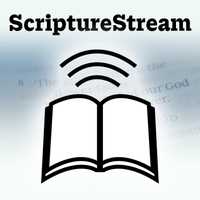- Laments, continued:
- Element 1: Invocation
- Element 2: Complaint
- Element 3: Petition
- Element 4: Conclusion
- Key features:
- Besides “lament,” what other terms could be used to describe this type of Psalm? A plea or prayer.
- Is it to try to “reason” with God to convince Him to do something?
- Yes, it is. This happened several times in the Old Testament. Moses did this in Exodus 32:11-14, for example.
- “For”: reasons in the Psalms
- God’s character – Psalms 5:4-6,10
- God’s past actions – Psalms 3:7; 106:44-46
- Actions of evil ones – Psalms 10:3-4
- Vindication of the righteous – Psalms 26
- “Lest” - consequences of God not responding – Psalms 6:4-5; 35:24-25
- “That” - positive outcome of God responding – Psalms 9:13-14; 35:9-10. (In a sense, this vow to praise is fulfilled in the psalms of praise.)
- Examples of people who tried to convince God to act in a certain way:
- Genesis 18:20-26,32,19 – Abraham interceding for Sodom and Gomorrah.
- Reason: punishing the righteous with the wicked would be unjust
- Outcome: God qualified His decision
- Outcome: God did not relent, but did preserve Lot
- Exodus 32:12-14 – Moses interceding for Israelites
- Reason 1: Protesting God’s name among the Gentiles
- Reason 2: Remembering the promise to Abraham, Isaac, and Jacob
- Outcome: God relented
- Matthew 15:22-28 – The Canaanite woman
- Genesis 18:20-26,32,19 – Abraham interceding for Sodom and Gomorrah.
- Examples
- Psalm 22
- Speaker and addressee
- Individual point of view to God
- Addresses those who fear the Lord
- General declaration (refers to God in third person)
- Specific events under consideration
- Not in context
- Setting of the Psalm in Hebrew worship
- To the choir director
- Use of divine names and descriptions of the relationship between the speaker and God
- Repeated terms of phrases
- “Loaded” or powerful terms
- Figures of speech
- Parallelism
- Word play
- Speaker and addressee
- Psalm 22
JS
February 26, 2014
For further study, see also:
Questions or comments? Join our Discord server for further study.
